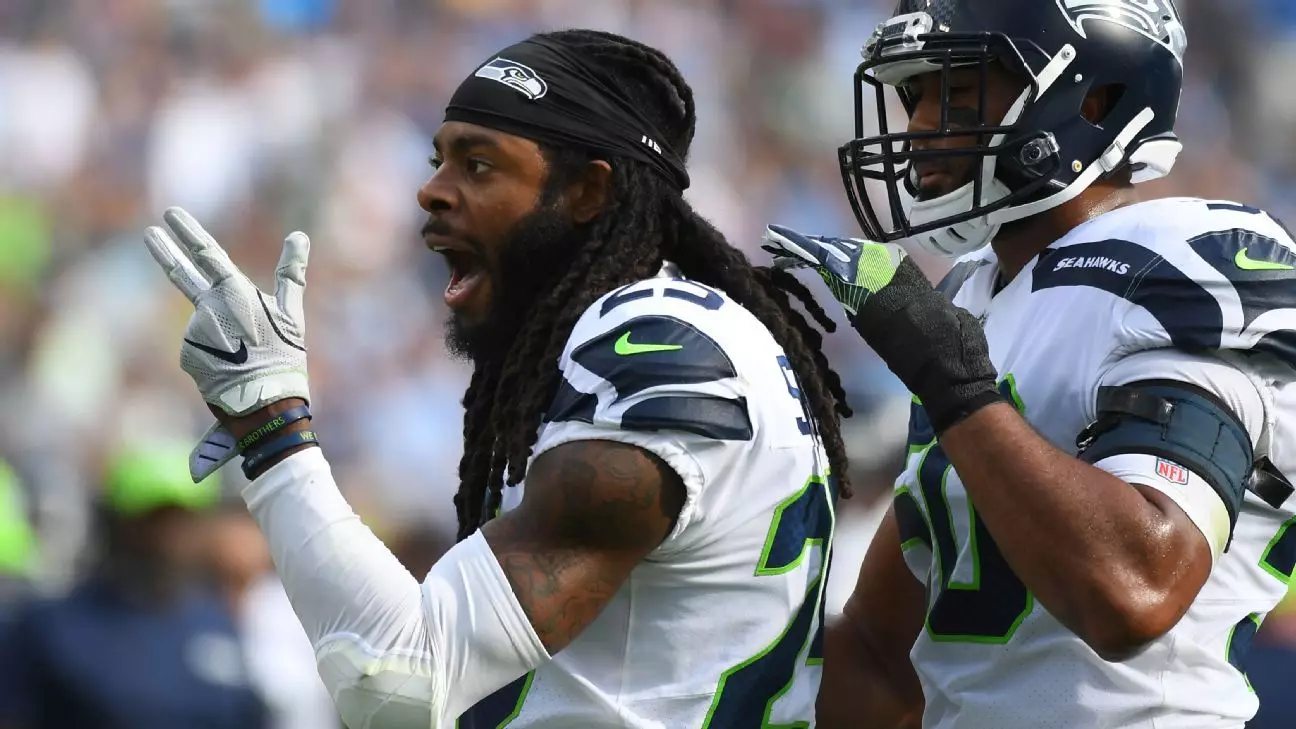In a disheartening revelation for the sports community, a string of burglaries targeting affluent athletes has been unearthed in Seattle. The suspect, Earl Henderson Riley IV, a 21-year-old man, has been charged with multiple counts of residential burglary, both occupied and vacant. The gravity of these crimes reached a notorious peak when valuables worth over $194,000 were stolen from the home of Seattle Mariners’ center fielder Julio Rodriguez. The burglaries have opened a conversation not just about crime but about the unsettling culture of targeting high-profile individuals.
What makes this case particularly alarming is the sheer audacity displayed by the burglar, who reportedly masterminded these break-ins over several months, starting from February. The stolen items include luxury handbags from prominent athletes, an alarming reality that exemplifies a broader national trend in which organized crime is now setting its sights on the property of elite sports professionals.
The Case Unfolds: More Than Just Kicks and Glories
The societal implications of these burglaries extend beyond the financial losses incurred by the victims. At the heart of this story is a chilling reminder that fame does not guarantee safety. For professional athletes, their homes—typically sanctuaries of privacy—have become playgrounds for criminals. Prosecutors have indicated that these types of crimes often occur while players are occupied with their professional commitments, exposing a vulnerability that many do not consider.
The FBI has taken notice, alerting sports leagues about the alarming trend of organized crime syndicates targeting the homes of athletes. The NFL and NBA have dispatched security alerts following similar incidents involving stars like Patrick Mahomes and Travis Kelce. This shared vulnerability among some of the most celebrated athletes poses profound questions about the systemic failings in protecting public figures.
A Culture of Exploitation
In a world where social media showcases the lavish lifestyles of athletes, it’s almost as if these individuals are unwittingly broadcasting their wealth to potential thieves. As homes filled with luxury items and memorabilia become conspicuous, the risk factor increases. Such targeted burglaries are a disturbing manifestation of a culture that often emphasizes consumption and material wealth, implicitly inviting scrutiny and, unfortunately, criminal interest.
The actions of Riley and his alleged accomplices bring to light another disturbing reality within the equations of celebrity and crime. We must grapple with the unsettling notion that many of our heroes are not only idolized but are also thought to be ripe targets for exploitation. It raises questions that resonate beyond law enforcement and brokerage—what responsibilities do we have as a society to protect those who entertain and inspire us?
Community and Legal Responses
The King County Prosecuting Attorney’s Office has taken a firm stance against these acts of crime, vowing to ensure justice for those victimized. Senior Deputy Prosecuting Attorney Gary Ernsdorff has articulated a strong commitment to continue the investigation, aiming to hold all involved accountable. Riley now faces significant legal repercussions, sitting in jail with a bail set at an impressive $1 million.
This case is more than just statistics; it is about real people and the impact of crime on their lives. Every high-profile burglary sends ripple effects throughout the community, touching families, fans, and future generations. The wider implications touch upon the ethics of how society values public figures and the responsibilities that come with celebrity status.
As we watch this story evolve, we are left to ponder difficult questions about respect and accountability. High-profile athletes often live under the constant microscope of public expectation, yet when it comes to their safety, we see a negligent gap that invites scrutiny—and rightfully so. The need for reinforced security measures, both for their homes and their personal wellbeing, has never been more urgent.
This unfolding saga is a clarion call for more sophisticated strategies to safeguard those whom society has elevated to hero status. It is a reminder that beneath the glitz, glamour, and wealth, a fundamental human right remains paramount: the right to feel safe in one’s own home.

